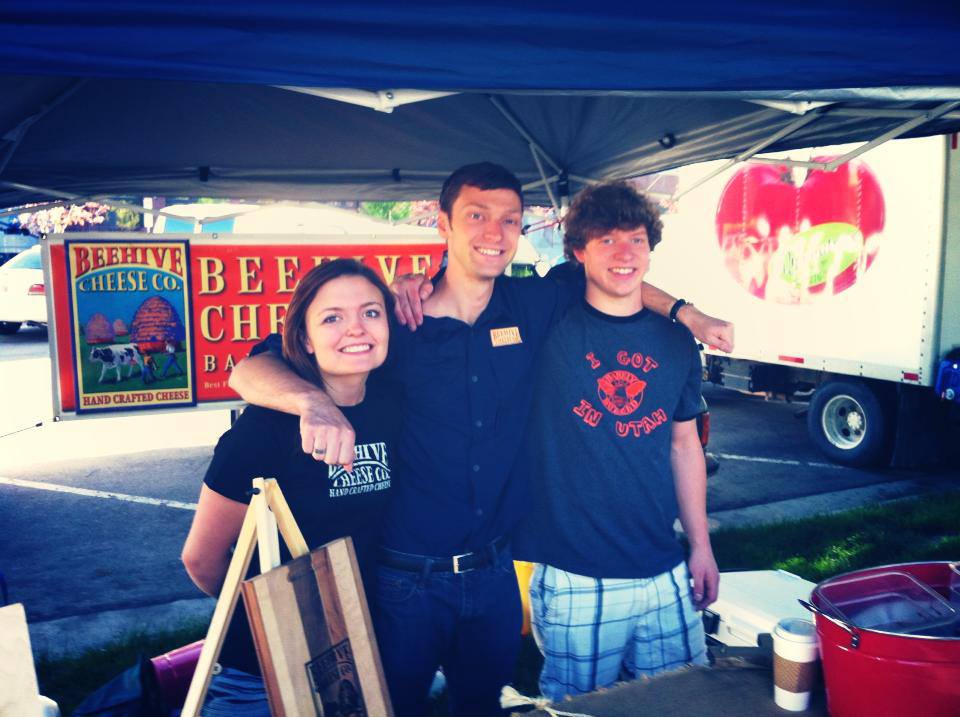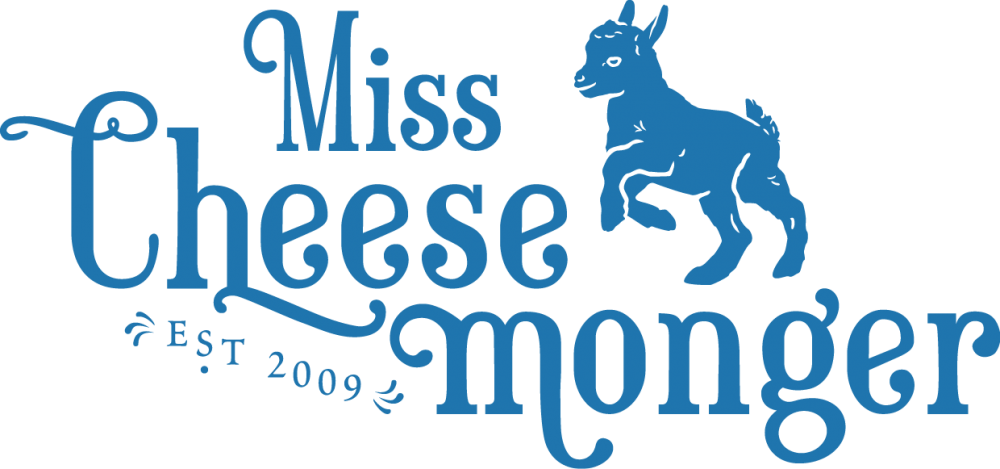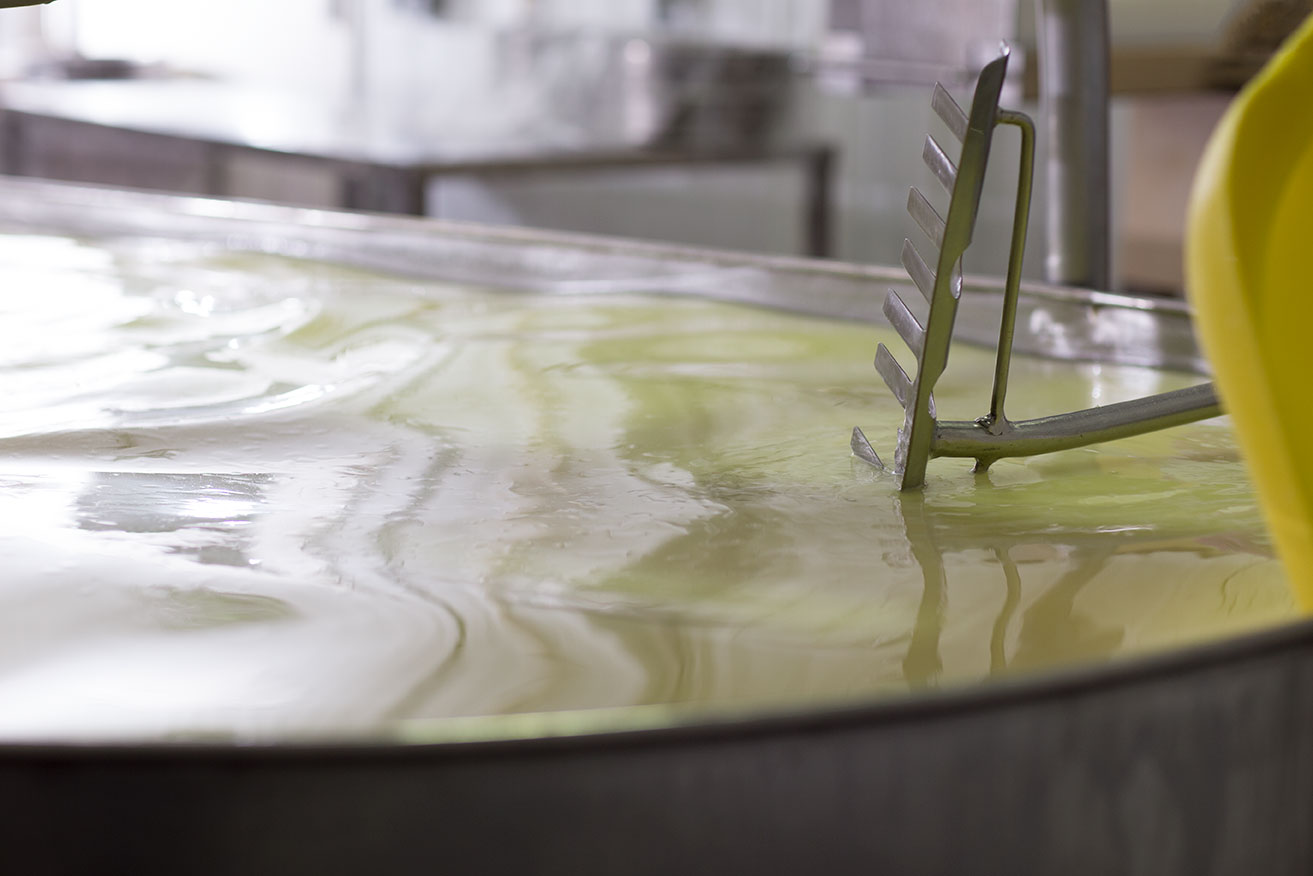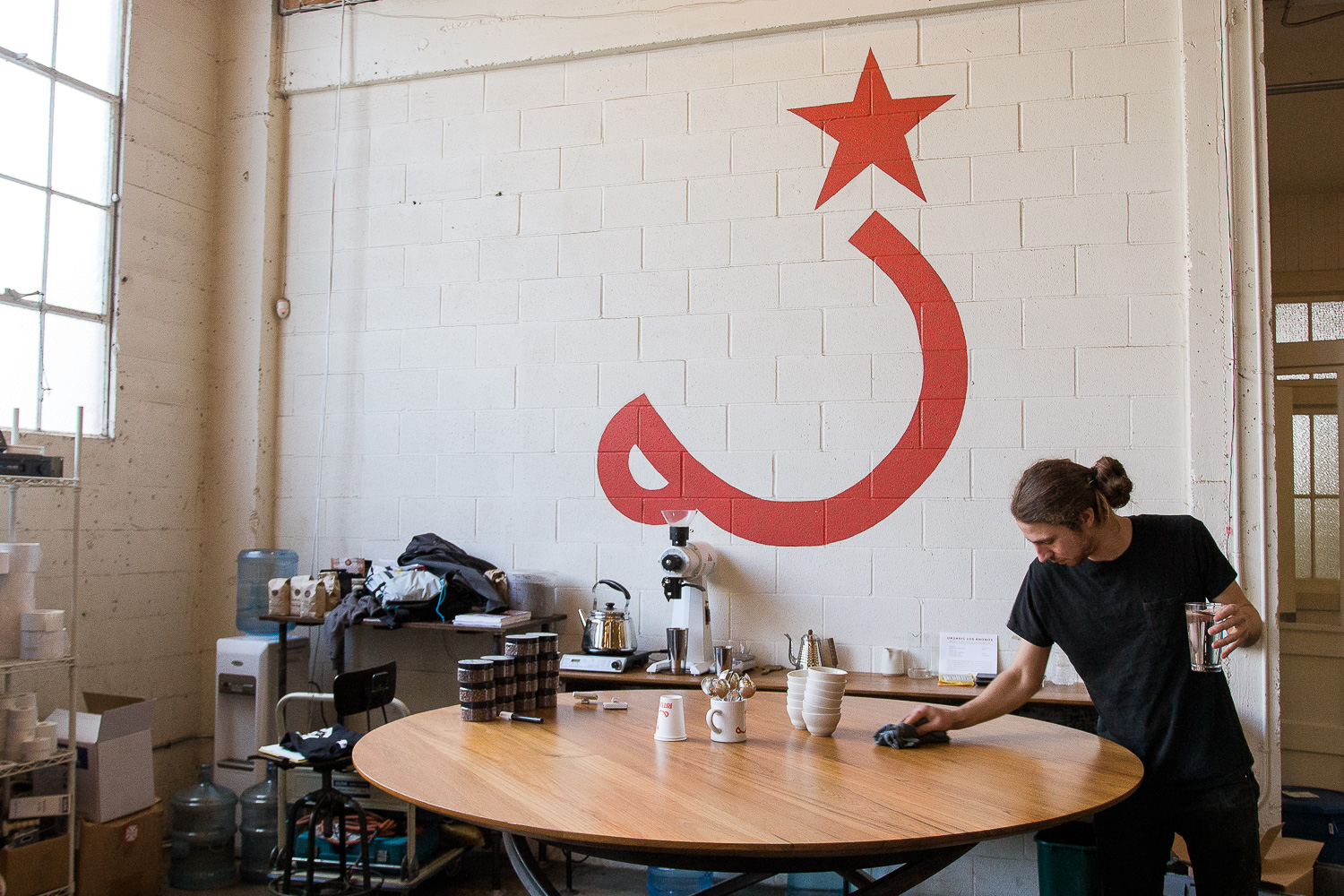Hello, my friends! This year has been getting increasingly crazy! My relatively new portrait photography business has suddenly started booming (yay!), and I am finding myself with increasing numbers of opera and operetta gigs (double yay). My transition away from being a lawyer feels like it’s going on the right track, and I couldn’t be happier! Additionally, after speaking to so many creative entrepreneurs and people who want to be creative entrepreneurs, I realized that these stories of striking out should be shared here, in addition to cheese stories. After all, the overwhelming majority of you readers are creative, curious souls, and cheese and entrepreneurship make a killer combo!
This week’s blog post is for those of you who dream of owning your own professional creamery, although I think the advice can apply to all industries! I spoke with Britton Welsh of Beehive Cheese Co. (Beehive Cheese), maker of such favorites as the lavender and espresso-infused Barely Buzzed. Beehive Cheese was founded in 2005 by Tim Welsh (yep, Britton’s father) and Tim’s brother-in-law Pat Ford. Tim was working at a software company as a product manager in the early 2000s, when the dot com bubble burst. After trying out a few different career options, he finally decided to change gears completely and start his own company. His own CHEESE company, to be precise. He brought Pat Ford, who was selling fire trucks, in on the plan. With Pat’s extensive sales experience and Tim’s management skills, they knew they could make things work. However, what they didn’t know about was cheese. After reading Steve Jenkins’s Cheese Primer [affiliate link], they knew they needed to get technical. Cue Utah State University (USU)! As one of the foremost dairy research universities in the country, they were able to help Beehive design a creamery, find a dairy partnership for milk, and get started with cheesemaking. To this day, new Beehive Cheese cheesemakers take the artisan cheese course at USU.
Britton saw what his father and uncle went through to start their business, and now works there full time. He still recalls when the company got their first automatic vat stirrer so he didn’t have to do it anymore. When you’re a small company just starting out, these are the milestones that people celebrate!

So what does Britton think has contributed to Beehive Cheese’s success, and what advice does he have for budding cheese—or any—entrepreneurs?
1. Relationships are key.
Whether your customer is big or small, a distributor or a consumer, treat individuals with respect. If someone has a complaint or a problem with the product, listen to them and make accommodations for them. The philosophy goes for relationships with partners as well. Beehive has maintained its relationship with USU, which has been a resource for them when navigating food safety regulations and manufacturing.
2. Understand your market.
Knowing your market size and demographic is part of understanding how you want your business to function. Britton gave an example of a cheesemaker who may have 20 cows. In that case, it might be more reasonable to envision working in a select number of farmers markets, as opposed to planning for nationwide sales. Beehive had a rather far-reaching plan from the beginning, and they’ve evolved with that plan in mind.
3. Understand your business.
A significant part of understanding your business means knowing all of your costs. It sounds obvious, but tracking everything you need to make your product is the best way to understand how to price it at an amount that will allow you to keep building your business.
Another part of understanding your business involves understanding your product and your skill set. It’s easy as an entrepreneur to want to try to do everything. Do one or two things, but do them well. In Beehive’s case, they know they make delicious hard cheeses. They’ve built their business on hard cheeses. Branching out into soft, bloomy rind cheeses might happen one day, but it’s unlikely anytime soon because that would require pouring resources into recipe development and new cheesemaking equipment. Don’t try to do everything. You don’t need to.
4. Maintain a culture of innovation.
Beehive seems to be made up of tinkerers. At every step of the process, people are encouraged to find ways to perform tasks more efficiently. That accomplishes two things: it keeps good employees engaged, happy, and more likely to stay, and it improves company processes. It’s a win-win situation!
For Britton, having that kind of freedom at work is a huge contributing factor to his happiness. Knowing that the rules can be improved on and rewritten makes for a dynamic and fun work experience.
5. Technology is your friend.
Even as a small-scale cheesemaker, you will have to track your production yield, your inventory, shipping, client accounts, financials . . . everything. Luckily, there are a lot of free and low-cost technological resources out there. Technology can be your greatest asset if it is simple, low-cost, and helping you. Some great tools we talked about are:
G Suite: From Gmail, to Forms, to Drive, Google low-cost ways to collaborate with coworkers, create and edit documents, and schedule meetings and events. Free and paid versions.
Streak: This little Google Chrome extension turns your Gmail into a CRM tool. I use it to manage my photography and blogging gigs. Free and paid versions.
ShipRush: This software lets you find the best shipping rates, print labels, set shipping parameters, and manage your shipping processes. Licensing fee.
Other programs I have used for project management:
Basecamp, $99/month
Trello, free and paid versions.
Both programs seemed to work well for my projects.
Evernote allows you sync notes over multiple devices. I use it with my business coach to share plans and brainstorm. Free and paid versions.

There are obviously so many factors that one needs to take into account when starting a new business, especially a cheese business where production is costly and the product is perishable. But this entrepreneurial spirit is what I think really sets the US artisan cheese market apart. I have seen so much passion and creativity in the US cheese scene, and am looking forward more!
Thank you, Britton, for sharing your thoughts with me!
You can find Beehive Cheese Co.’s delectable cheeses at specialty food stores all around the US. Visit their website for more information.
Photographs courtesy of Beehive Cheese Co.
It’s my work to create great content for you. Do you love you see? Here is how you can support me:
PHOTOGRAPHY! Let me bring your food projects, business, and products to life. Let’s create something beautiful together! See my food photography portfolio. Or see my portrait portfolio for portrait work. Contact me to start brainstorming!
BUY through my affiliate account links at Amazon.com (where you can get nearly anything under the sun), the French Farm (where you can find delicious and beautiful French products for the kitchen, and get free shipping for orders over $75), and Taza Chocolate (maker of some of my favorite Mexican-style chocolates). Bookmark these links for later! You can purchase anything through them, not just what I recommend to you, and I will receive a small percentage of those sales at no extra cost to you! Everybody wins!





